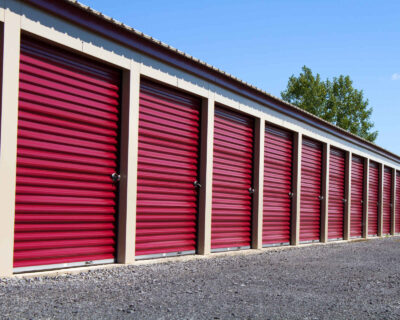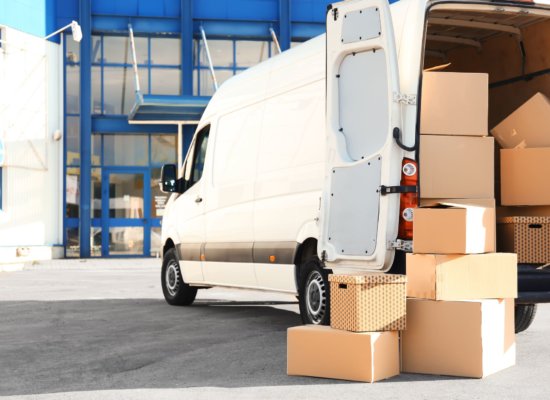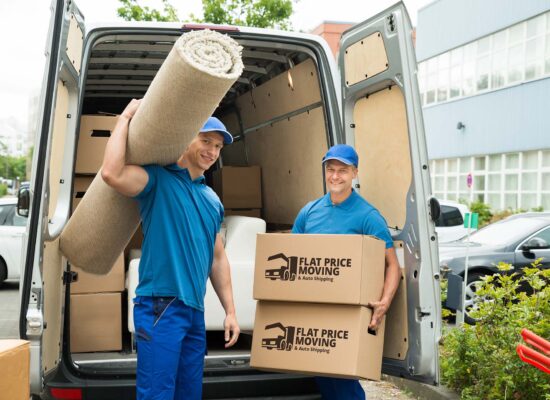Transporting My Car to Another State: Do’s and Don’ts
If you are contemplating on “I am planning on transporting my car to another state, but not sure how to do it myself,” worry not. We are here to ensure that your four-wheeler is properly prepared and securely shipped to your future location. From understanding regulation and planning to choosing the right car shipping company for the job, dive in as we navigate the ins and outs of this venture.

How Many Cars Are There in the US?
You might be surprised by the sheer number of vehicles cruising US roads. Forbes statistics reveal an astonishing 280 million personal vehicles and trucks registered nationwide. This translates to roughly one vehicle per individual. Furthermore, nearly 92% of households boast at least one four-wheeler.
But not all these vehicles guzzle gas. Electric vehicles are gaining traction annually. Their registrations have skyrocketed, and even though they represent a minor portion of total registrations, the shift towards greener transport options is evident.
Why the Need for Transporting My Car to Another State?
The decision to transport a vehicle to another state can arise from various personal or professional circumstances. As our lives evolve, our geographical needs often shift, pushing us to consider options we might not have thought of before.
The American interstate system, while vast and intricate, offers a lot in terms of connectivity. But, when it comes to our vehicles, is it always practical or feasible to drive them across these vast distances? Let’s dive into some common scenarios where the need for auto transportation across state lines becomes prevalent.
Relocating Due to Career Opportunities or Company Transfers
One of the most frequent reasons for transporting a vehicle is job-related relocation. The excitement of getting a job in a new city or the responsibility of a company transfer can also come with the logistics of relocating to a new home.
While some belongings can be donated to charity, sold, or disposed of, an automobile, for many, is a significant asset, both in terms of its financial value and its role in daily life. Driving the vehicle to the new location might not always be feasible due to time constraints, wear and tear, or personal comfort. In such cases, hiring long-distance movers can be a convenient and safe choice.
Is It Better to Buy a New Vehicle After Relocation or Transport My Old One
This question often lingers in the minds of those on the move. The answer, however, isn’t one-size-fits-all, and it’s essential to evaluate both the tangible and intangible factors before making a final decision. These are the several factors that play into this decision:
- The age and condition of the current vehicle – newer vehicles might be worth transporting due to their higher value, while older ones might not justify the cost.
- The cost of transportation – depending on the distance, method, and chosen auto transport company, this cost can vary widely.
- The difference in prices between states – some states may offer better deals on certain vehicles or have differing tax rates and fees that can impact the total cost of a new purchase.
- Emotional attachment – for many, their four-wheeler holds memories and sentimental value, making the decision more than just financial.
- Future maintenance and repair costs – an older auto that is nearing the end of its warranty or needs significant repairs soon might not be worth transporting.
- Registration, taxes, and fees in the new state – the cost and process of registering a transported vehicle can sometimes be more complex or expensive than getting a new one after relocation.
- Environmental considerations – some might consider the environmental impact of their vehicle and think about switching to a more eco-friendly option available in the new state.
- Resale value – depending on market conditions, the car might have a higher resale value in one place compared to another, which could affect the overall cost calculations.

Do’s – Best Practices for a Smooth Transition
Every relocation to another state requires attention to detail and thorough planning. While there are several stages in the process, adhering to a set of best practices and relocation tips can ensure the transition is as seamless as possible. Let’s delve into the pivotal steps and practices to guarantee a smooth and safe relocation of your cherished four-wheeler.
Research Reliable Transport Services and Pick the Best One for Your Needs
The bedrock of stress-free relocation is undoubtedly choosing a trustworthy long-distance moving company. Begin with a thorough online search, perusing customer reviews and ratings.
Look for companies with a track record of reliability, punctuality, and impeccable customer service. Once you’ve shortlisted a few, get quotes and compare auto transport services offered. Ensure you’re not just looking for the cheapest option but one that offers the best value for your money.
Why Is Flat Price Auto Transport and Moving a Good Choice for Your Auto Shipping Needs
Flat Price Auto Transport and Moving has made a name for itself in the realm of auto transportation. Our reputation for transparent pricing and efficient solutions makes us a top pick in this industry.
With an extensive network and range of long-distance moving services, we ensure clients get a tailored experience. The consistent positive feedback from customers underscores our commitment to quality and reliability.
Prepare Your Four-Wheeler for the Journey Ahead
Before handing your automobile over for transportation, it’s imperative to get it in tip-top shape. Start by pre-move cleaning the exterior to easily spot any pre-existing dents or deep scratches. Vacuum the interior to avoid any unpleasant surprises upon arrival.
Additionally, it’s a good idea to leave just enough fuel for moving the vehicle on and off the transportation trailer, but not too much, as excessive fuel can add unnecessary weight. Double-check for personal belongings and accessories, as they can easily fall off and get broken during transport.
Check the video below for some tips on how to clean your vehicle for transportation.
Research and Understand the Costs and Payment Methods
Hidden costs can be a nasty surprise. Thus, once you’ve zeroed in on a transport service, it’s vital to understand the entire fee structure. Ask your movers about any potential additional charges, like charging for oversized vehicles or extra services.
Familiarize yourself with the company’s preferred payment methods, and be wary of any service that demands full payment upfront. It’s always prudent to hire a company that offers a mix of upfront and post-service payment options, ensuring that both parties have skin in the game.

Don’ts – Common Mistakes to Avoid
Shipping a vehicle across state lines is more than just about logistics. It’s about ensuring its safety and condition from start to finish. However, many often find themselves caught in pitfalls due to oversights or lack of knowledge. By highlighting these common mistakes, we aim to help you navigate the transportation process more effectively.
Don’t Forget About Getting Insurance in Case of Unwanted Scenarios
Insurance isn’t just an add-on but a necessity. A prevalent mistake many commit is bypassing relocation insurance, thinking it’s an additional cost that they might never utilize. But accidents and unforeseen situations are unpredictable.
Before transporting your vehicle, verify the transportation coverage offered by the shipping company. It’s often recommended to get additional comprehensive insurance. This ensures that, in the unfortunate event of damages, you’re not left in a financial pitfall or with a hefty repair bill. Make sure to always read the fine print and understand what’s covered.
Make Sure That No Personal Items Are Left in the Vehicle
It might seem obvious, but you’d be surprised how many people forget to take out their personal items before relocation. Not only can these items shift and cause damage to the interior during transit, but transportation companies are also not liable for any personal belongings left inside.
In some cases, having too many items inside can even violate transportation regulations or add unnecessary weight. Before handing over your vehicle, do a thorough check and look under the seats, in the glove compartments, and inside pockets. Remove any valuable items, important documents, electronic devices, and even the spare change from the cup holder.

Get Familiar With Different Types of Auto Transport Services
When the time comes to transport your vehicle, understanding all of the options available is paramount. Each method has its unique set of advantages and potential drawbacks, and your choice will be influenced by factors like your budget, the value of your vehicle, and your need for convenience.
Open Trailer Transport – Affordable and the Most Common Choice
Open carrier transport is what many envision when they think of car shipping. Multi-level trailers, often seen on highways, carry a variety of vehicles, from sedans to SUVs. This method is typically the most affordable, making it a popular choice for many.
The vehicles are exposed to the elements, be it weather conditions or road debris. However, it’s worth noting that the likelihood of damage is relatively low, and for many, the cost savings outweigh the minimal risk involved.
Enclosed Trailer Transport – The Premium Choice for Luxury and Vintage Vehicles
For those with luxury cars, vintage classics, or just a vehicle with sentimental value, enclosed carrier transport offers an added layer of protection. As the name suggests, automobiles are shipped in closed containers, protecting them from external factors like weather, dirt, and debris. While this option comes at a premium, the peace of mind it provides, especially for high-end vehicles, often justifies the additional cost.
Door-To-Door vs. Terminal-To-Terminal Options – Convenience vs. Cost
Door-to-door service offers unparalleled convenience, as the company picks up and delivers the vehicle right to your specified locations, but it usually comes at a hire price. On the other hand, terminal-to-terminal means your vehicle will be picked up and dropped off at the company’s closest terminal to you, which can be more cost-effective.
While door-to-door minimizes hassle, terminal-to-terminal might be a preferable choice for those looking to save some money when relocating and who don’t mind the extra legwork.

Additional Tips for a Worry-Free Experience
The process of transporting your automobile can be as smooth as a Sunday drive or as bumpy as a gravel road, depending largely on your preparation. To ensure a seamless transition from one state to another, consider these added measures below.
Make Sure to Secure All the Loose Parts and Deactivate Alarms
Your four-wheeler may have custom installations, aftermarket additions, or even factory features that could potentially become loose or problematic during transport. From antennas to custom spoilers, ensure everything is tightly secured.
Equally important is the car’s alarm system. A triggered alarm can cause unnecessary delays and hassles during transit. It’s best to deactivate it before the shipping process begins to ensure no unexpected interruptions.
Thoroughly Document the Vehicle’s Pre-Transport Condition
Having a detailed record of your vehicle’s state prior to its journey can be a lifesaver. Before handing over the keys, take time to photograph and note any existing dings or specific issues. This documentation not only gives you peace of mind but also serves as a reference in case any disputes arise post-transport regarding the vehicle’s condition.
Moving Services
Whether you are moving from New York to Los Angeles or from San Francisco to Chicago, we can help you.
Read morePacking Services
Our moving teams are trained to pack your belongings in the most efficient manner possible.
Read moreStorage Service
Knowing what kind of surprises cross country move may hold, we offer 30 day free storage for belongings at the origin state.
Read moreConfirm Delivery Dates to Plan Your Schedule Accordingly
While most auto transport services strive for punctuality, it’s always wise to have a clear understanding of the timeline. Ensure you’ve confirmed the expected pick-up and delivery dates. This way, you can adjust your schedule, be present at the delivery, and ensure everything is in order upon the vehicle’s arrival.

Book Our Cross-Country Movers for a Seamless Relocation of Your Cherished Four-Wheeler
When it comes to shipping your belongings and vehicle, it is important to entrust them to experts who offer professional packing services and safe transportation practices. At Flat Price Auto Transport and Moving, we understand that your vehicle isn’t just a means of transportation. It’s a cherished possession packed with memories and sentiments.
Our expert team is trained and equipped to handle every intricacy of the journey. If you wish to have a successful long-distance relocation, feel free to contact us today and book our services on time. Let’s pave the way for a smooth transition together.
FAQ
How Long Does It Typically Take to Ship a Car to Another State?
The duration of the journey largely depends on the distance and the route taken by the shipping company. On average, coast-to-coast transport might take 7-10 days, if not more, while shorter distances between neighboring states could take just 1-3 days. However, always keep in mind that there are factors that could cause potential delays, such as road conditions, traffic congestion, and heavy weather occurrences.
Is It Safer to Use an Open or Enclosed Carrier?
Both open and enclosed carriers have their own set of advantages. Open carriers are commonly used and are generally safe for most vehicles. However, if you have a luxury, antique, or a vehicle of significant sentimental value, you might opt for an enclosed carrier. It offers added protection from weather elements and road debris, ensuring the vehicle remains in pristine condition.
Do I Need to Be Present When My Car Is Picked Up or Delivered?
While it’s preferable for the owner to be present to ensure all checks and documentation are in order, it’s not always mandatory. If you cannot be present, you should arrange for a trusted individual to be there on your behalf. They can oversee the process and ensure all protocols are followed.
How to Prepare My Car for Transportation to Another State?
First, clean the vehicle and remove all personal belongings. Document the vehicle’s current condition with photographs. Ensure the vehicle is in good running condition, but keep only about a quarter tank of fuel. Also, deactivate any alarms and secure any loose parts or custom installations.
What Kind of Insurance Do I Need When Transporting a Car?
It’s crucial to ensure that the company has a valid insurance policy that covers potential damages during transit. However, for added peace of mind, you might consider purchasing additional transportation insurance. This offers more comprehensive coverage in the rare event of damages or mishaps. Always read the insurance policy carefully and understand what’s covered.












